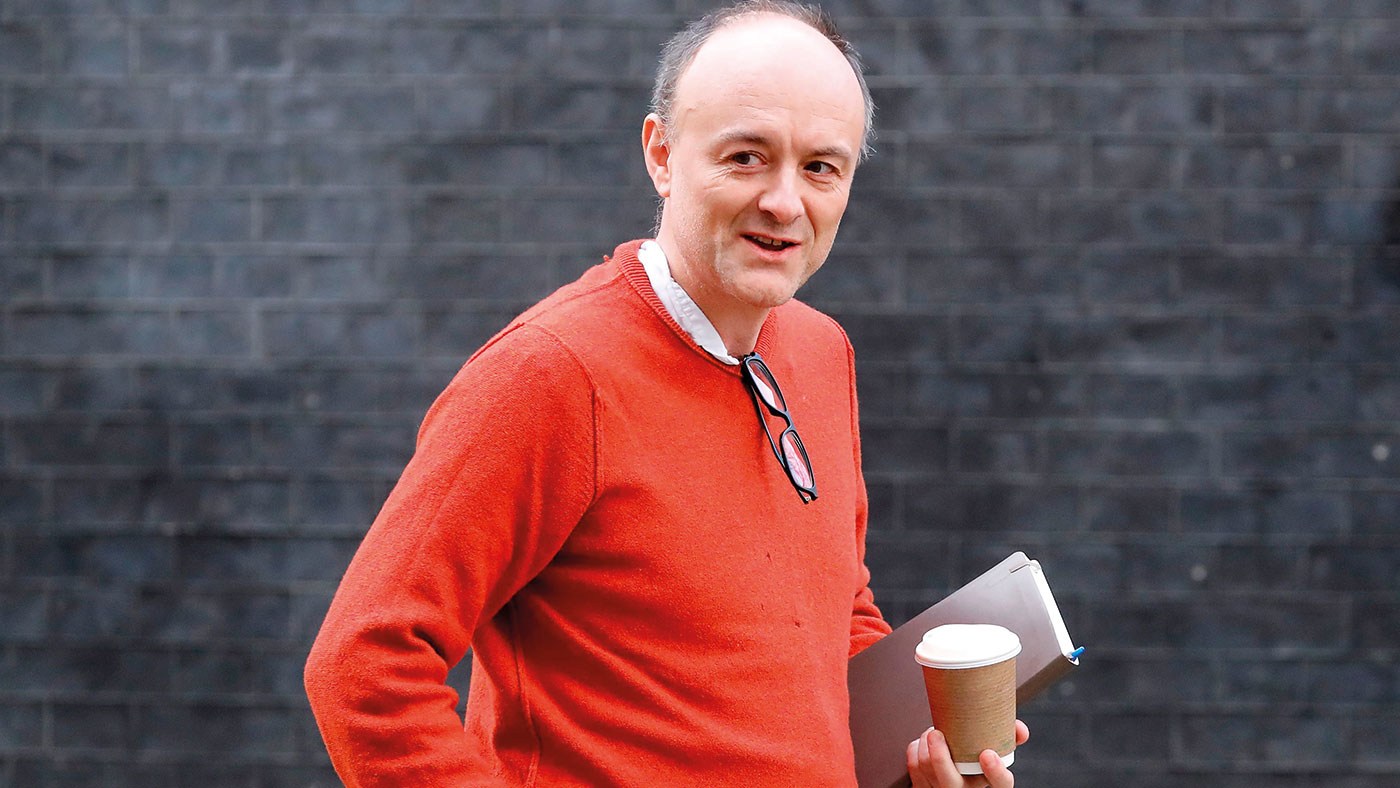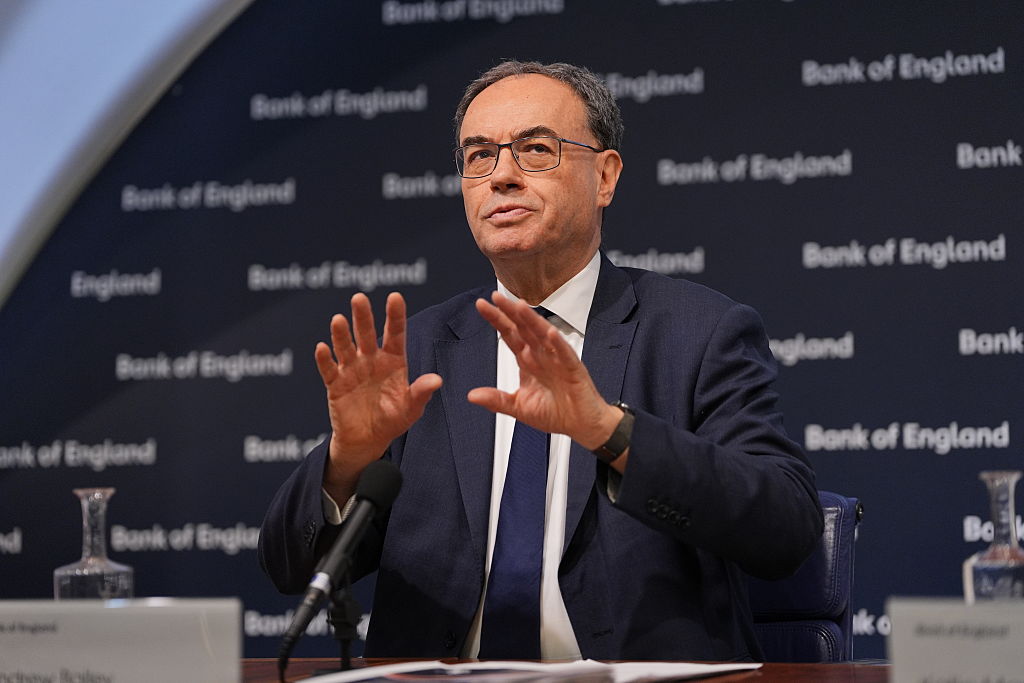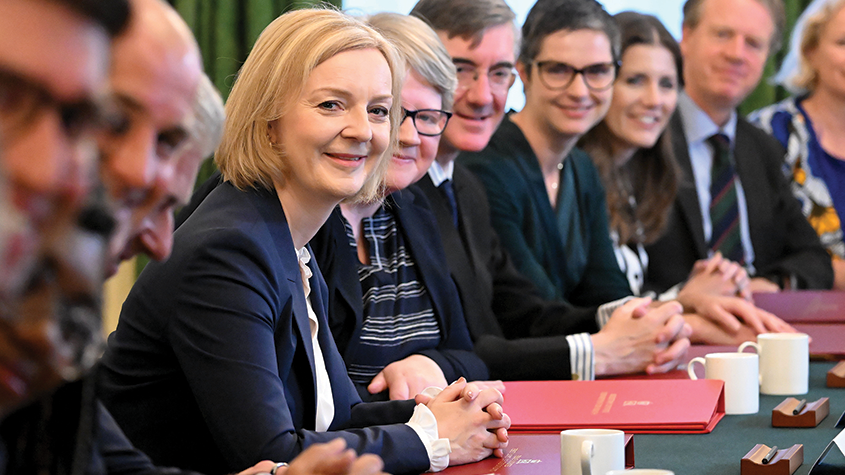Dominic Cummings: the "weirdos" take back control
The prime minister’s special adviser is planning big changes in the way the government machine works. What can we expect? Simon Wilson reports.

Get the latest financial news, insights and expert analysis from our award-winning MoneyWeek team, to help you understand what really matters when it comes to your finances.
You are now subscribed
Your newsletter sign-up was successful
Want to add more newsletters?

Twice daily
MoneyWeek
Get the latest financial news, insights and expert analysis from our award-winning MoneyWeek team, to help you understand what really matters when it comes to your finances.

Four times a week
Look After My Bills
Sign up to our free money-saving newsletter, filled with the latest news and expert advice to help you find the best tips and deals for managing your bills. Start saving today!
Why are “weirdos” in the news?
Because the prime minister’s senior strategist, Dominic Cummings, is trying to recruit more of them. In a typically rambling near-3,000-word post on his personal blog, Cummings launched an appeal for “super-talented weirdos” to come and work as special advisers and civil servants. The British state has had enough of “public-school bluffers” and “Oxbridge humanities graduates”, he reckons. Instead, he argues, what’s needed is a new cadre of “unusual mathematicians”, physicists, computer and data scientists – as well as “misfits… artists” and “people who never went to university and fought their way out of an appalling hellhole” to make it.
What’s his thinking?
Cummings is a longstanding and vehement critic of the civil service, which he sees as stuffed with incompetent generalists unable to think imaginatively about policy and poor at execution. He has a point. The British civil service was once the gold standard, but the abolition of basic numeracy and literacy tests for fast-streamed graduates, the abandonment of assessment boards and increasingly high staff turnover have all damaged the service, says Iain Mansfield of Policy Exchange.
What can Cummings do about it?
He believes that Brexit, plus a large stable Conservative majority, presents a historic opportunity to transform the UK by taking greater risks in policy-making and addressing “profound problems at the core of how the British state makes decisions”. To do so, he argues that we must foster what he calls “true cognitive diversity” in Whitehall. It is not part of Cummings’s role as the PM’s adviser to recruit civil servants and Downing Street has distanced itself from Cummings’s claim that he could “bin” anyone he appointed within weeks if they didn’t “fit”. But it is very much within Cummings’s remit to appoint special advisers and to influence policy in recruitment more widely.
MoneyWeek
Subscribe to MoneyWeek today and get your first six magazine issues absolutely FREE

Sign up to Money Morning
Don't miss the latest investment and personal finances news, market analysis, plus money-saving tips with our free twice-daily newsletter
Don't miss the latest investment and personal finances news, market analysis, plus money-saving tips with our free twice-daily newsletter
In what direction?
For the most part, this means recruiting more mathematicians, data scientists and physicists (a course first urged by the Fulton report way back in 1968) and it also involves attracting “true wild cards”. Cummings admits this is something of an experiment. “By definition I don’t really know what I’m looking for but I want people around No. 10 to be on the lookout for such people,” he says. Alas, he is not clear on how the state is going to attract data whizzes and physics geeks who could be earning far more in business or the City.
Is there anything more concrete?
Not yet. What Cummings’s plan boils down to seems to be the creation of a beefed-up, centralised, policy delivery unit within Downing Street stuffed with data whizzes with the authority to shape policy and monitor delivery across government. This kind of structure has been essayed before (from Edward Heath’s Central Policy Review Staff to Tony Blair’s Performance and Innovation Unit) and there’s no reason why Cummings’s plan can’t succeed if he can find a way to attract and pay the people he says he wants. But the obvious risk, argues Gian Volpicelli in Wired, is that Cummings’s elite team of misfits “ends up becoming an island of data-crunching futurism while the rest of Whitehall chugs along as usual”.
What will change?
Downing Street wants the UK legally out of the EU (at the end of this month) before they announce details of how they plan to transform Whitehall. But some big clues can be drawn from a Daily Telegraph article by Rachel Wolf, the political adviser who co-wrote the Conservatives’ election manifesto and is close to both Boris Johnson and Dominic Cummings. Much of the speculation about the forthcoming reorganisation has focused on departmental rejigging (a new “Taskforce Europe” to replace the Brexit department, and so on). But according to Wolf, that kind of restructuring is “only a tiny fraction of the Government’s plan” .
What’s the bulk of it?
The new administration wants nothing less than to run “the most dynamic state in the world” – one that gathers the brightest minds to deliver in new agencies focused on innovation, solving the productivity puzzle and transforming swathes of the country. This won’t be done by politicising the civil service. Allcomers including “socialists” will be welcome, says Wolf, “as long as they literally deliver trains on time. Or figure out nuclear fusion.” What it will involve, though, is “seismic” systemic change. Those senior officials who haven’t grasped that the PM and Cummings “mean business” on genuinely radical reform, says Wolf, are “woefully unprepared for what is coming”.
Which is what?
The first goal is to recruit more scientists and mathematicians to the civil service fast stream (currently only 17% of recruits have science-related degrees). Also, to educate officials in data science, systems thinking and “super-forecasting”, setting exams to test progress. Second, “the merry-go-round will slow”. Keeping officials in place for longer will develop institutional memory and expertise and increase accountability, says Wolf. This will require a revamp of incentives, numbers and pay. Third, civil servants will be “reoriented to the public” and voters rather than their political masters. What this means in practice is unclear, but the aim is to make sure that civil servants are focused on helping the government meet its promises. Can Johnson and Cummings push all this through? According to Jill Rutter of the Institute of Government, that depends on whether Cummings and whatever team he assembles can translate ideas into action when “most of the levers will still be in departments”. In other words: he needs the cooperation of both ministers and mandarins. And that will depend on finding sufficient numbers of “ministers and officials who are both able to understand his messages and act on them”.
Get the latest financial news, insights and expert analysis from our award-winning MoneyWeek team, to help you understand what really matters when it comes to your finances.
-
 Early signs of the AI apocalypse?
Early signs of the AI apocalypse?Uncertainty is rife as investors question what the impact of AI will be.
-
 Reach for the stars to boost Britain's space industry
Reach for the stars to boost Britain's space industryopinion We can’t afford to neglect Britain's space industry. Unfortunately, the government is taking completely the wrong approach, says Matthew Lynn
-
 Will UK interest rates fall in 2026? Latest Bank of England predictions
Will UK interest rates fall in 2026? Latest Bank of England predictionsThe Bank of England held interest rates at 3.75% in their February meeting. Will interest rates stay at this level, or will they fall further this year?
-
 Petrol prices explained: What makes up the price of a litre of petrol?
Petrol prices explained: What makes up the price of a litre of petrol?Briefings The cost of filling the average car with fuel is falling. Here’s what makes up the price of a litre of petrol.
-
 Mini-Budget: will Kwasi Kwarteng’s gamble on growth work?
Mini-Budget: will Kwasi Kwarteng’s gamble on growth work?Briefings The government has launched the biggest dash for growth in 50 years, relaunching an approach known as supply-side economics. What is the plan – and will it work?
-
 Energy Price Guarantee: Liz Truss’s gigantic state handout
Energy Price Guarantee: Liz Truss’s gigantic state handoutBriefings The PM railed against government-funded largesse on the campaign trail. Now she is introducing energy price guarantees that will cost more than furlough. Is that a good idea?
-
 One year later: how is Afghanistan faring under Taliban rule?
One year later: how is Afghanistan faring under Taliban rule?Briefings It’s been a year since the Taliban took back control in the country following the withdrawal of US troops. The outlook remains grim. Simon Wilson reports
-
 Neom megacity: Saudi Arabia’s vision of the future
Neom megacity: Saudi Arabia’s vision of the futureBriefings The kingdom is building a futuristic city in the desert, a key component of its plan to wean the economy off oil and woo tourists and global businesses. Could it work?
-
 How to solve Britain’s water crisis
How to solve Britain’s water crisisBriefings A drought has been officially declared across much of Britain, despite the fact that climate change is bringing more rain than ever. What’s going wrong?
-
 10 years on: how has the London Olympics “legacy” panned out?
10 years on: how has the London Olympics “legacy” panned out?Briefings The 2012 Games would benefit not just athletes and spectators, but the whole economy over the longer term, we were told at the time. Ten years on, how has that panned out? Simon Wilson reports.